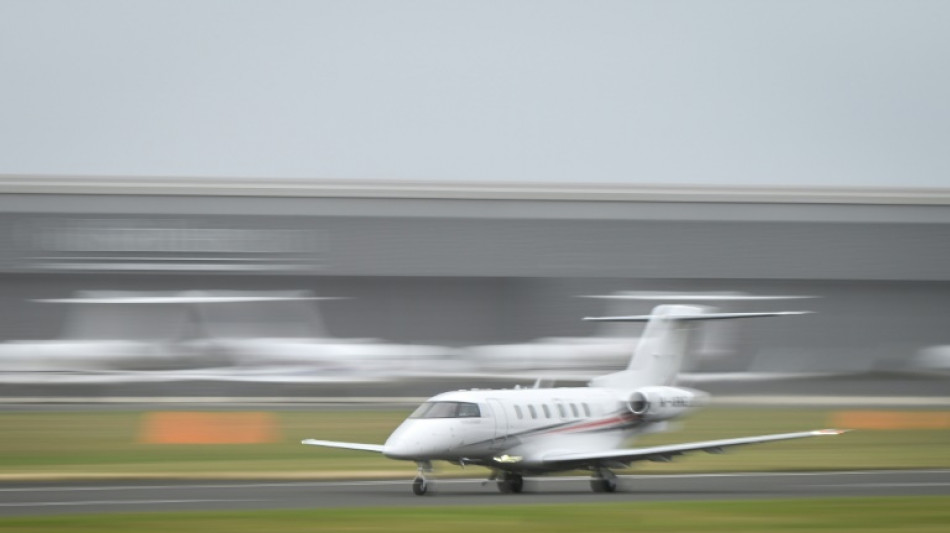
CMSD
-0.3700

The carbon footprint from private jet travel grew 46 percent between 2019 and 2023 and will keep rising unless the ultra-luxury industry is regulated, according to new research published Thursday.
Carbon dioxide emissions from private aviation peaked over the European summer and around major global events like the World Cup, Cannes Film Festival and UN climate summits, the study found.
The transport of choice for the rich and famous, private jets are the most energy-intense form of flying and the industry has long been a target of climate protesters.
Private aviation was responsible for 15.6 million tonnes of CO2 emissions in 2023, wrote the study's authors from Swedish, Danish and German universities.
This represented less than two percent of commercial aviation's overall carbon emissions.
But private jets cater to just 256,000 people -- about 0.003 percent of the world's adult population -- meaning significantly higher emissions per passenger than commercial travel.
Researchers assessed flight tracker data from roughly 18.7 million individual charters flown between 2019 and 2023 representing the vast majority of global private aviation.
They found roughly half these trips were less than 500 kilometres (310 miles) and many were empty, en route to pickup or undertaking a delivery.
They also noted that private jets on very short trips "in many instances appear to replace cars for time gains or convenience".
"The analysis shows that individuals using PA (private aviation) emit disproportionally more than an average human," said the study published in the peer-reviewed journal Communications Earth & Environment.
Around two-thirds of the world's private jets are based in the United States, and the average passenger has a personal net worth of $123 million.
In 2023, considerable private jet traffic was associated with the Super Bowl, the World Economic Forum in Davos and the COP28 climate conference in Dubai.
Such gala events can attract "hundreds of individual flights" that generate "considerable emissions", the study said.
There was also "a clear seasonal trend of visitation peaking in summer" in luxury coastal locations like Ibiza and Nice, with journeys clustered around weekends.
The private jet industry is forecast to grow, with predictions the current fleet of 26,000 aircraft could grow roughly one-third by 2033.
This means private aviation will become increasingly important as a source of CO2 emissions in relative and absolute terms, the authors said.
"As sustainable aviation fuel use remains limited, and a majority of private aircraft owners do not plan to use it in the near future, it will be necessary to regulate the sector."
Private air travel "illustrates the policy conundrum of addressing the role of the affluent, as policymakers are reluctant to focus on the wealthy and powerful", the study added.
M.Soucek--TPP